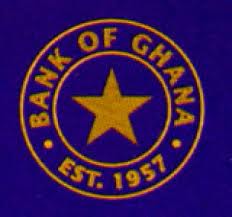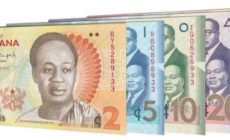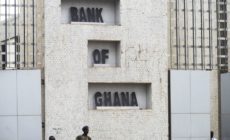Bank of Ghana injects US$20m into critical areas of the economy
- Posted on
- Comment
 The Bank of Ghana (BoG) has injected $20 million into critical areas of the economy as part of efforts to shore up the cedi.
The Bank of Ghana (BoG) has injected $20 million into critical areas of the economy as part of efforts to shore up the cedi.
Governor of the Bank of Ghana, Dr Henry Kofi Wampah, who disclosed this to the Daily Graphic did not give details but stated that the BoG also planned to roll out more stringent measures to fend off mounting inflation and stabilise the cedi.
He said decline in the value of currencies was not peculiar to Ghana, was pervasive in many parts of the world.
In an effort to stablise the cedi, there was the need to ensure that the country’s reserves were not be depleted.
The cedi has, since the beginning of the year, suffered more than three per cent depreciation against other currencies, as demand for the dollar by local firms importing goods to drive the growing economy heavily outstripped the supply, thereby worsening the country’s inflation outlook.
Dr Wampah also said the Monetary Policy Committee (MPC) would announce a string of banking reserve restrictions to deal with the twin difficulty of inflation and depreciation of the cedi.
“We are aware of the slight depreciation of the cedi, and in addition to the measures we have just announced, new guidelines will be considered at the next MPC sitting,” he said.
New regulations
The central bank had already issued new regulations to improve liquidity on the interbank currency market and shore up the local currency, Dr Wampah said.
The regulations require all commercial banks in the country to quote a two-way pricing of currency exchange and limit the spread on corporate transactions to a maximum of 200 percentage points.
“I believe this new set of measures and others to follow soon are transformational and will help revamp our interbank market and stabilise the local currency,” he said.
The BoG Governor and his team are expected to go to Parliament to reinforce their regulatory control of the currency under the current circumstances.
“We intend to ensure strict compliance,” he said, adding that the central bank would soon announce further restrictions on foreign accounts.
Although January has barely ended, the cedi has already depreciated by more than three per cent, after closing 2013 with a 17 per cent slump against the dollar.
It was trading at GH¢2.45 or GH¢2.50 to the dollar last Tuesday and analysts expect it to remain under pressure next week, while market participants assess the impact of the new regulations.
But Dr Wampah was upbeat that the measures already taken and those which would be rolled out next would stem the tide.
“This decline is seasonal due to firms buying dollars to pay for goods bought during Christmas and it will soon subside,” he said.
Analysts say the directive will result in a review of the measures introduced to check the cedi’s free fall, since other measures already introduced are yet to produce the desired result.
More than regulations
The Head of Research at Databank, Mr Sampson Akligo, thinks the problem requires more than regulations.
According to him, providing a two-way quote and limiting the spread would help in facilitating transparency.
“Broader rules often rather distort the markets and lead to off-balance sheet transaction,” he said.
The attempt to stem the constant decline of the cedi follows a directive by the Vice-President, Paa Kwesi Amissah-Arthur, that the Finance Ministry, together with the BoG must work fast to save the local currency from further depreciation.
Finance Minister
The Minister of Finance and Economic Planning, Mr Seth Terkper, has promised to strengthen existing foreign exchange laws to help halt the decline in the value of the cedi.
Earlier this week, President John Mahama had said stabilising the currency was a priority if the government was to enable the private sector to lead economic development.
Other priorities, he said, were bringing down inflation and closing the budget deficit, he said.
Macroeconomic instability, including a falling currency, casts a shadow over Ghana’s economy.
Background
In 2012, when the cedi depreciated by almost 20 per cent, the BoG, then headed by now Vice-President Amissah-Arthur, increased interest rates, limited the net open positions of local banks in currency trading, introduced new 30, 60 and 270-day government bonds to mop up liquidity, restricted local banks from holding nine per cent reserves against non-cedi deposits in foreign exchange and instructed a 100 per cent local Ghana cedi cover for all bank vostro accounts.
Those measures temporarily halted the decline of the cedi, which was seen as a bold attempt to stem exchange rate fluctuations.
The new Ghana cedi was introduced on July 3, 2007 after four zeros were knocked off, making it the highest-valued currency unit issued by any sovereign country in Africa in 2007.
At that time, US$1 was sold at GH¢0.91.
In December 2008, US$1 was sold at GH¢1.10.
In June 2009, US$1 was sold at GH¢1.40; in December 2010 it sold at GH¢1.47 and in December 2011 it sold at GH¢1.64
At the beginning of 2013, US$1 was exchanged at GH¢1.88 and ended the year at GH¢2.16, a 15 per cent decline, according to statistics by the Ghana Stock Exchange (GSE).
-Daily Graphic










 (Selorm) |
(Selorm) |  (Nana Kwesi)
(Nana Kwesi)